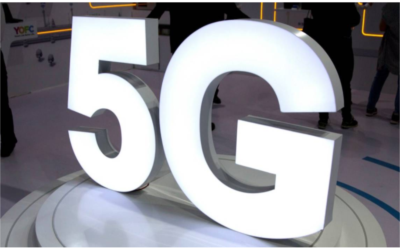
Spark refusing to halt 5G rollout, despite protest
Spark is dismissing concerns from protesters who want its 5G rollout halted in the interests of public safety. Anti-5G activists are planning to demonstrate outside the telco's Auckland headquarters on Thursday, calling on the Government to place a moratorium on the latest mobile technology "until more research is done into its effects on people, and the environment". Nearly 10,000 people have signed a petition urging Minister Broadcasting, Communications and Digital Media Kris Faafoi to step in. But Spark says the underlying technology is the same as 4G and there's nothing to worry about. "I am concerned there has been no consultation with the public by the government or the telecommunications companies about the risks of 5G, and whether we even need it," said protest co-organiser John Hieatt. "5G has not been proven safe, and in fact there is much scientific evidence that it is not. I am concerned about the very young, as I have three grandchildren of my own." They'll be gathering at Victoria Park at 11:30am and walking to Spark's offices on Victoria St. They held a previous protest outside Vodafone's headquarters in October, which reportedly about 25 people attended. Spark told Newshub there have been "thousands of scientific studies over the last couple of decades" showing "no clear evidence that cell sites present risks to human health". "The Spark wireless network is fully compliant with international and national limits that are based on decades of scientific research. And based on our continuous and robust testing obligations, exposure levels from Spark's cell towers are typically only a small fraction of the exposure limit." Most scientists, including Chief Science Advisor to the Prime Minister Juliet Gerrard, say there's no evidence to suggest 5G is any more harmful than previous mobile technology. The first rollout will see 5G use the same frequency range as 4G, before moving to higher-frequency 'millimetre' waves. Because high-frequency waves don't travel as far, there will need to be more towers - which concerns protesters. "We need much, much more of those cell towers - smaller cell towers, very small ones, even in your living room you'll need [one], because [5G waves] will not penetrate the walls of the building," biochemistry professor Dariusz Leszcynsky of the University of Helsinki While the protesters hold up Prof Leszcynsky as one of the few scientists standing against the rollout of 5G, he actually told The AM Show there's no evidence "in either direction". 5G waves are non-ionising, which means they can't damage the DNA in our cells. The current standards limit telcos to 50 times below the harmful level of radiation. "The radio waves used for 5G have frequencies that are ten thousand times too low to damage molecules," said Gerrard. "The only fully documented way 5G radio waves can cause harm is through their heating effect and this can only happen at very high intensities." But scientists also say having more towers means the network will operate more efficiently - so they'll be running at reduced power, further reducing the risks. A 2degrees spokesperson in November described the concerns at"1080 all over again". "Rational people are becoming really upset because this kind of misinformation is not being corrected by government agencies," Mat Bolland told NZME. While the World Health Organization in 2011 did say using cellphones could pose a cancer risk, they were placed in the same category - 2B - as caffeine, kava and being a carpenter. "The majority of studies show that there is no relationship between weak electromagnetic field exposure and symptoms or health," University of Auckland health psychology professor Keith Petrie said in July. "Some people report that they are sensitive to the electromagnetic fields used in mobile phone and wifi. Studies show that such people do experience symptoms, but only when they know they are being exposed. In double-blind conditions where they are exposed without knowing whether the electromagnetic field is on or off, no reliable effects are apparent." Spark said members of the public concerned about 5G should "get their information from the Ministry of Health or the World Health Organisation, not from social media". Nonetheless, Spark says it will be "interested to talk with" the protesters when they show up. Spark has already set up 5G in a few locations, and Vodafone's set to turn its network on this month. Faafoi declined to comment.


